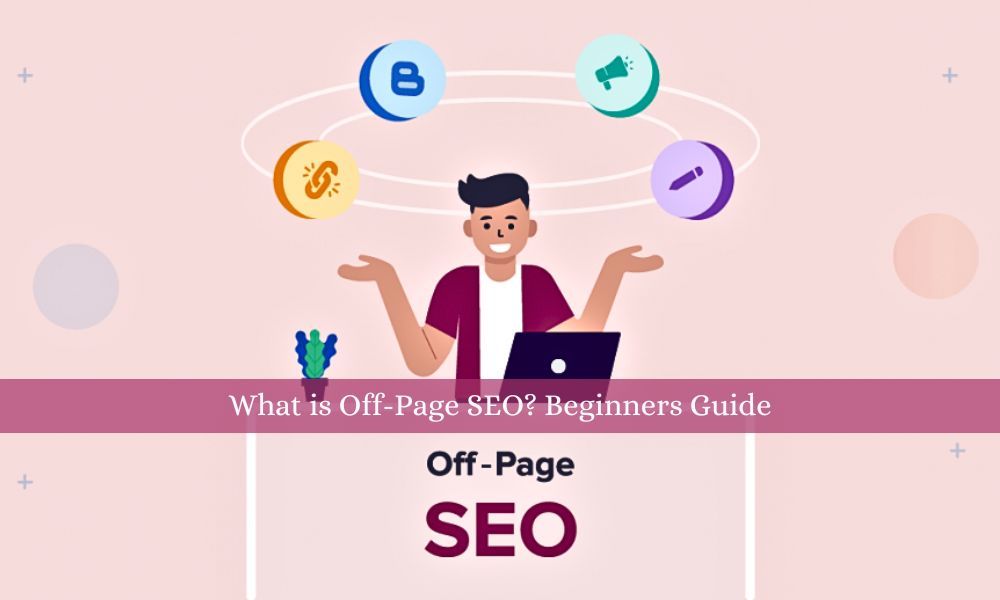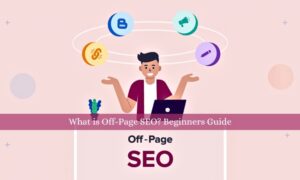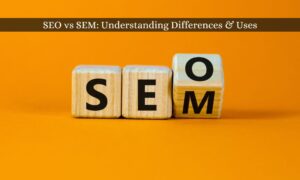When it comes to search engine optimization (SEO), most people think of on-page factors like optimizing keywords, crafting meta descriptions, and improving internal linking. However, another critical aspect of SEO often determines the difference between a top-ranking website and one that lingers on the second page – off-page SEO.
If you’re new to SEO, you might wonder what off-page SEO is, how it works, and why it matters. This blog will break it all down in simple, easy-to-understand terms.
What is Off-Page SEO?
Off-page SEO refers to all the activities performed outside your website to improve its ranking on search engine results pages (SERPs). Unlike on-page SEO, which focuses on optimizing elements on your website, off-page SEO builds your website’s authority, credibility, and reputation through external factors.
The ultimate goal of off-page SEO is to convince search engines, like Google, that your website is trustworthy and worth ranking higher than others.
Why is Off-Page SEO Important?
Search engines consider many factors when ranking websites, and off-page elements are a big part of the equation. Backlinks, social signals, brand mentions, and other external factors signal to search engines that your site is popular and authoritative.
Here’s why off-page SEO matters:
- Improved Rankings: Off-page SEO boosts your website’s authority, which directly impacts your rankings.
- Increased Traffic: Higher rankings lead to more clicks, driving more organic traffic to your website.
- Brand Building: Off-page efforts like social media and influencer collaborations help strengthen your brand presence.
- Building Trust: Links from reputable websites improve your site’s trustworthiness in the eyes of search engines and users.
Key Components of Off-Page SEO
Now that we understand the importance of off-page SEO, let’s explore its core components:
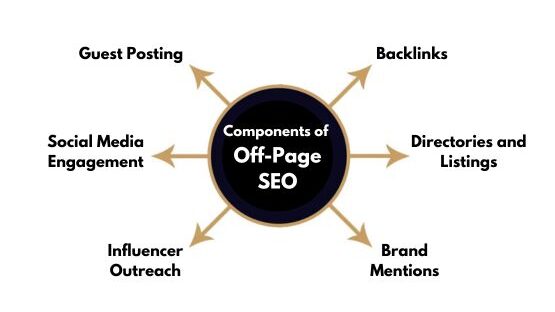
1. Backlinks: The Backbone of Off-Page SEO
Backlinks are links from one website to another. They are among the most crucial ranking factors in off-page SEO. When authoritative websites link to your content, it signals to search engines that your content is valuable and credible.
- Types of Backlinks:
- Natural Links: Earned organically without any request or effort.
- Manually Built Links: Acquired through deliberate outreach efforts like guest posting or influencer collaboration.
- Self-Created Links: Created by you, like adding links to directories or forums (use sparingly to avoid penalties).
- What Makes a Good Backlink?
- Comes from a high-authority website.
- Is relevant to your niche.
- Uses appropriate anchor text.
2. Social Media Engagement
Social signals, such as likes, shares, and comments, indicate that your content resonates with audiences. While social media engagement may not directly impact rankings, it drives traffic to your site, increasing your content’s visibility.
3. Brand Mentions
Even if a website doesn’t link to your site, mentions of your brand across the web can enhance your online authority. Search engines recognize unlinked mentions as signals of credibility and relevance.
4. Guest Posting
Writing and publishing content on other reputable websites allows you to reach a wider audience, earn backlinks, and establish authority in your niche.
5. Influencer Outreach
Collaborating with influencers in your industry can amplify your content’s reach. Influencers help promote your brand or website to their followers, increasing awareness and traffic.
6. Online Directories and Listings
Submitting your business information to online directories like Google My Business or Yelp ensures you show up in local searches. This is especially important for local SEO.
How to Get Started with Off-Page SEO
For beginners, off-page SEO might feel overwhelming. Here’s a step-by-step guide to help you begin:
1. Create High-Quality Content
Even the best off-page strategies won’t work if your content isn’t valuable. Focus on producing high-quality, shareable content.
2. Build Backlinks Strategically
- Reach out to bloggers and websites in your niche for guest posting opportunities.
- Create shareable assets like infographics and videos that others would want to link to.
- Analyze competitors’ backlink profiles using tools like Ahrefs or SEMrush to find possible linking opportunities.
3. Leverage Social Media
- Share your content on social platforms.
- Reach out to your audience by responding to comments and engaging in relevant discussions.
- Collaborate with influencers to increase content visibility.
4. List Your Website on Directories
Ensure your business information is consistent across all online directories to boost your local SEO efforts.
5. Monitor Your Progress
Use tools like Google Analytics, Google Search Console, and backlink analysis tools to track your off-page SEO efforts. Evaluate what’s working and tweak your strategies accordingly.
Common Mistakes to Avoid in Off-Page SEO
- Overloading Low-Quality Backlinks: Focus on quality over quantity when building links.
- Ignoring Relevance: Backlinks from unrelated websites can hurt your SEO efforts.
- Using Spammy Practices: Avoid buying links or using automated tools to generate backlinks. Search engines penalize such tactics.
- Neglecting Social Media: Underestimating the power of social engagement can lead to missed opportunities.
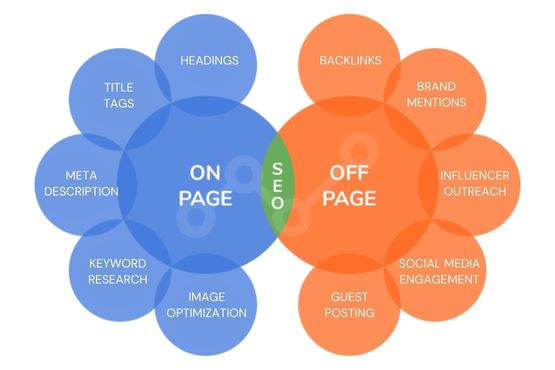
Off-Page SEO vs. On-Page SEO: How Do They Work Together?
While off-page SEO focuses on external factors, on-page SEO deals with internal optimizations like keywords, meta tags, and content quality. Both are crucial for achieving SEO success. Think of it as a partnership: on-page SEO makes your website user-friendly and relevant, while off-page SEO gives it authority and trustworthiness.
Conclusion:
Off-page SEO is an essential aspect of any comprehensive SEO strategy. By focusing on building high-quality backlinks, engaging on social media, and earning brand mentions, you can elevate your website’s authority and ranking on SERPs.
Remember, off-page SEO is not a one-time task but a continuous effort. Keep refining your strategies, stay updated with industry trends, and watch your website grow in credibility and traffic.
Ready to take your SEO efforts to the next level? Start implementing these off-page techniques today!
When learning about off-page SEO, it’s also crucial to build a strong foundation in overall SEO strategies. If you’re looking to enhance your skills, at Moving Digits, we offer an SEO course in Dadar designed to teach you the latest techniques in on-page and off-page SEO, along with practical insights to improve website performance.
